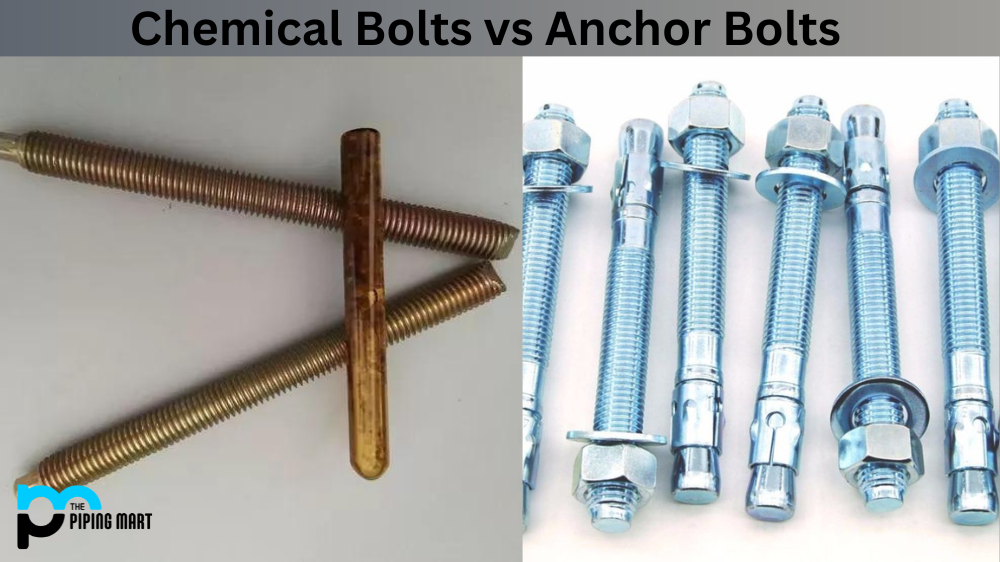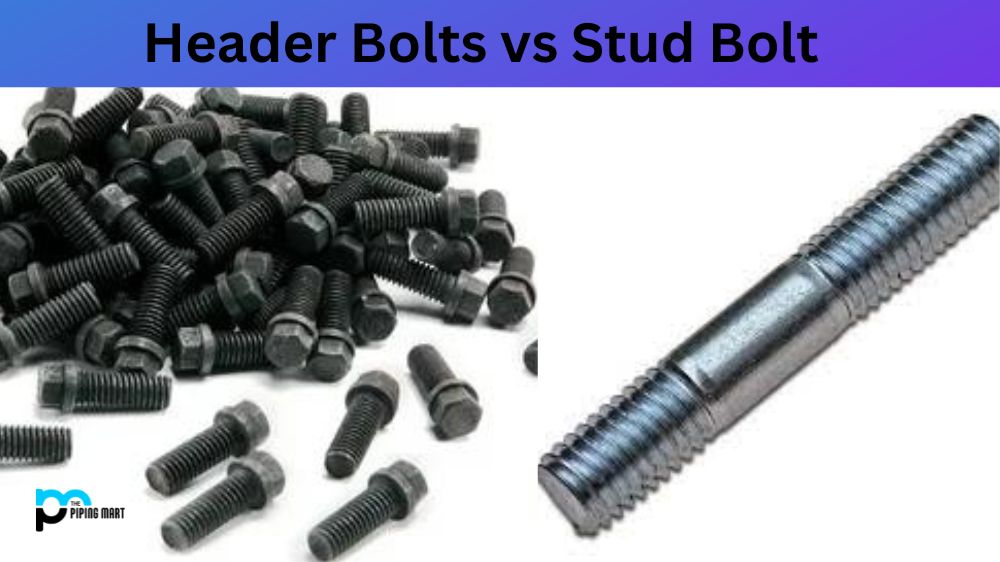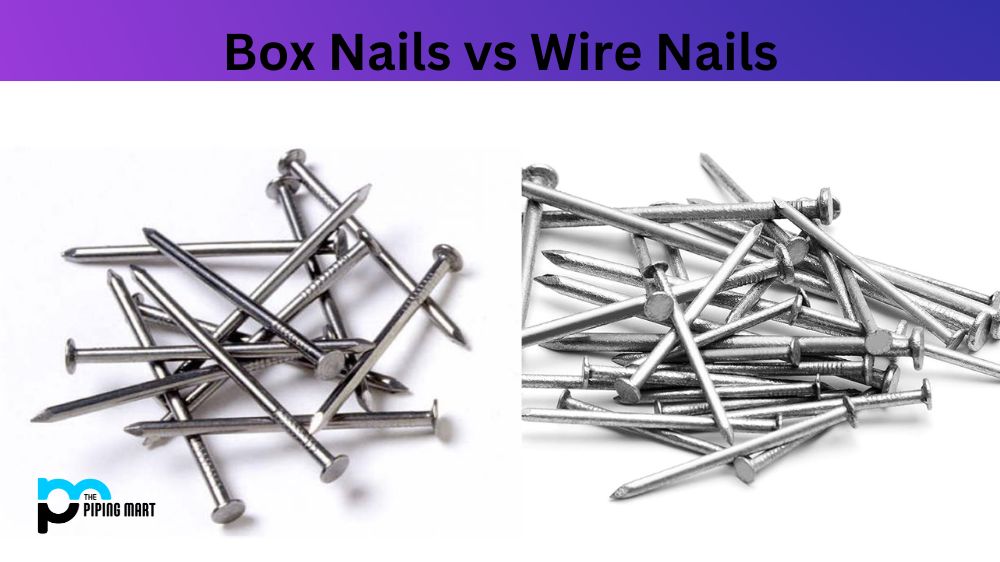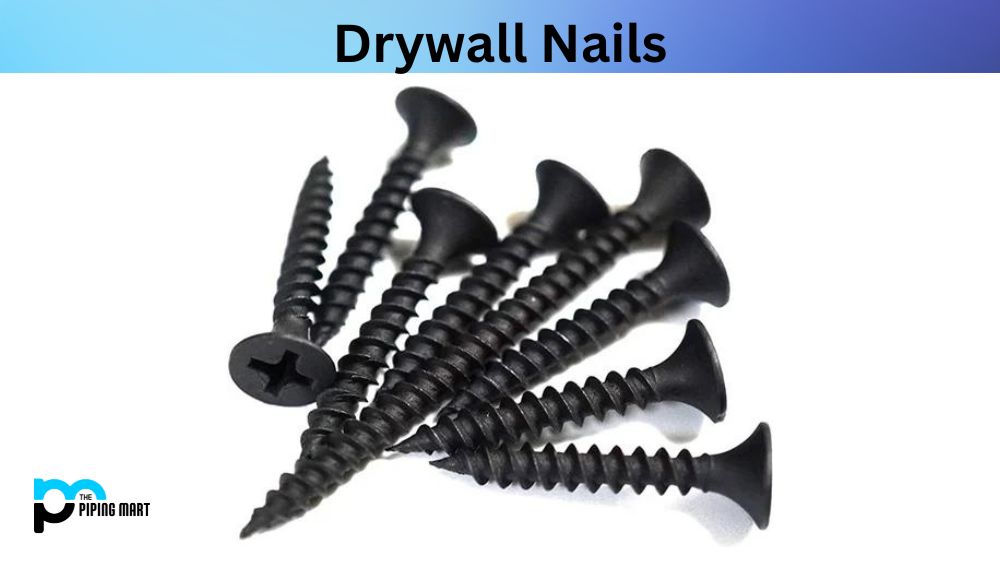Have you ever asked yourself, “What’s the difference between chemical bolts and anchor bolts?” If so, you’re in luck! In this blog post, we will provide a comparison between these two types of bolts to help you better understand their differences.
Chemical Bolt
Chemical bolts are used to secure steel structures such as bridges, buildings, towers, and transmission lines in concrete. They are made of a threaded steel rod coated with corrosion-resistant material and filled with epoxy resin. The resin reacts with the concrete to form a strong bond that securely holds the bolt. Chemical bolts have several advantages over other fasteners; they are easier and faster to install than traditional anchor bolts and require no additional maintenance once installed. Additionally, chemical bolts provide superior seismic resistance because of their high bond strength.
Anchor Bolt
Anchor bolts are used for many of the same applications as chemical bolts; however, there are some key differences between them. Whereas chemical bolts form a strong bond with the concrete, anchor bolts rely on tension to stay in place. This means installation takes longer as nuts must be tightened down on each bolt after it is set. Over time, anchor bolt connections can become loose or even fail due to fatigue or vibration from heavy machinery or wind loads if not properly designed and maintained. Additionally, anchor bolt connections may only meet seismic requirements with additional reinforcement, which can increase costs significantly.
Difference Between Chemical Bolt and Anchor Bolt
Advantages of Chemical Bolt
One advantage of chemical bolts is that they can be tightened or loosened without needing tools. This makes them ideal for applications where frequent adjustments need to be made, such as in the construction of scaffolding or temporary structures. Additionally, chemical bolts are less likely to loosen over time than other fasteners, making them ideal for high-vibration applications such as engines and machinery.
Advantages of Anchor Bolt
One advantage of anchor bolts is that they provide a high degree of stability. This makes them ideal for use in applications where a high level of safety is required, such as in the construction of buildings and bridges. Additionally, anchor bolts are less likely to loosen over time than other fasteners, making them ideal for high-vibration applications such as engines and machinery.
Disadvantages of Chemical Bolt
One disadvantage of chemical bolts is that they can be difficult to remove once installed. This can make them impractical for use in applications where frequent adjustments need to be made. Additionally, chemical bolts can corrode over time if they are exposed to moisture or chemicals, making them unsuitable for use in outdoor applications.
Disadvantages of Anchor Bolt
One disadvantage of anchor bolts is that they can be difficult to install if the hole size is not precise. Additionally, anchor bolts can corrode over time if they are exposed to moisture or chemicals, making them unsuitable for use in outdoor applications.
Conclusion
When choosing between chemical bolts and anchor bolts for your project, it is essential to consider all factors, such as installation time, cost, seismic performance requirements and long-term maintenance needs, before deciding. Chemical bolts offer many benefits over traditional anchor bolt connections, including faster installation times, higher bond strength and better seismic resistance; however, it is essential to remember that each application is unique, so it is best to consult a professional engineer when selecting fasteners for your project to ensure that you choose the right one for your needs. With this information in mind, you can decide which type of fastener is best suited for your project.

Abhishek is a seasoned blogger and industry expert, sharing his insights and knowledge on various topics. With his research, Abhishek offers valuable insights and tips for professionals and enthusiasts. Follow him for expert advice on the latest trends and developments in the metal industry.




